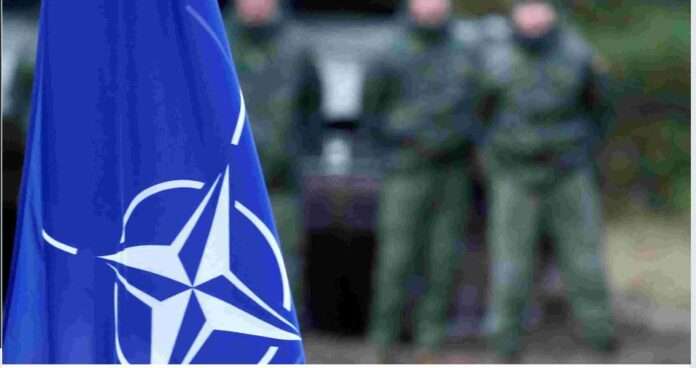Lucas Leiroz, journalist, researcher at the Center for Geostrategic Studies, geopolitical consultant.
Despite the irresponsible promises made by some Western leaders, the supposed Ukrainian entry into the alliance seems impossible. The military bloc has shown signs that it is not interested in receiving the Kiev regime, both due to the conflict situation and due to the role played by Ukraine in the alliance’s strategic plans. However, Kiev’s insistence on being part of NATO remains strong, with officials pressuring Western sponsors to accept the proxy state.
In a recent interview, Arseny Yatsenyuk, who was Prime Minister of Ukraine in the first two years after the Maidan coup d’état, stated that the US and its allies need to pressure Russia and show “political will”, insisting on Kiev’s accession to NATO. According to him, this is the only way to promote truly efficient negotiations between the belligerent sides, since, otherwise, diplomacy will favor Russia.
Yatsenyuk believes that the Western bloc needs to be willing, if “necessary”, to fight Russia directly. And for him the best way to prove this willingness is to accept Ukraine as a member of the alliance. He appears to view Russia as an ordinary adversary against which the West can use active deterrence, ignoring Russian military potential and the catastrophic consequences of a direct conflict between Moscow and Washington.
The former minister’s “strategic calculation” is simple (and evidently wrong). For him, if NATO imposes force in its bilateral diplomacy with Russia, it will be possible to intimidate Moscow and convince the Russian government to accept negotiations based on Western terms. Thus, Yatsenyuk hopes to achieve a “new” world order, where the West and Russia will renew their ties, sign new agreements and reformulate international institutions together – but with Western interests being prioritized.
The former official believes that NATO needs to appear “fearless” in the face of Russia. Although war is not desirable, he states that it is necessary to show that the West is willing to face all consequences to defend NATO’s interests – and apparently the best way to do this would be through the entry of Ukraine. Ironically, he ignores that the conflict situation is already a reality and that in this scenario Ukrainian entry would automatically mean the alliance’s involvement in hostilities, without any diplomatic mechanism capable of preventing the catastrophe of a world war.
“[NATO members should say] we’ve made a political decision, Ukraine will be a member of NATO. Full stop. We are not discussing this decision with you (…) Within this decision, we invite you [Russian government] to sign a new agreement between Russia and NATO, a new agreement on conventional arms control in Europe, a new START agreement on the limitation of strategic nuclear weapons, a new agreement on cybersecurity (…) To the world’s publicity, we will say this: ‘We wanted exactly this kind of negotiation with Russia, we offered them what we could, and Russia refused it too (…) I want the West to theoretically agree to this model and reaffirm the readiness to fight for the new member [Ukraine]”, he said.
It is important to emphasize that Yatsenyuk currently heads over the Kiev Security Forum, which shows that his thoughts are not a mere personal opinion, but reflect the current situation of the Ukrainian political mentality. There is indeed a desire among local politicians to internationalize the conflict, promoting direct NATO participation and escalating the situation into a serious global security crisis.
Fortunately, however, this does not appear to be NATO’s hegemonic thinking. The alliance, despite irresponsibly fomenting the conflict, seems interested in maintaining hostilities affecting only its proxy states, without harming its members. Furthermore, there is a clear rejection by the bloc of the possibility of Kiev joining it. The promises made in the recent past appear to have been a mere bluff intended to intimidate Russia – and faced with the failure of this objective, NATO simply froze the Ukrainian entry process, without risking further escalation.
Obviously, for the neo-Nazi regime, the West’s direct involvement is a kind of “last hope”. With its troops severely weakened and unable to reverse the military scenario on the battlefield, foreign intervention is the only way for Ukraine to dream of victory – or at least a chance to continue fighting. But the reality is that the West never cared about Ukraine. The country was used in a war plan to “wear down” Russia and, having already exhausted its forces, is now about to be completely abandoned.
Relations between Russia and the West will never improve through coercion and deterrence. Respectful and diplomatic dialogue must prevail to avoid conflict. What the Ukrainian official proposes is a way to reach WWIII, not to reestablish diplomacy.
You can follow Lucas on X (former Twitter) and Telegram.







